Publications
Articles, publications, books, tools and multimedia features from the U.S. Institute of Peace provide the latest news, analysis, research findings, practitioner guides and reports, all related to the conflict zones and issues that are at the center of the Institute’s work to prevent and reduce violent conflict.
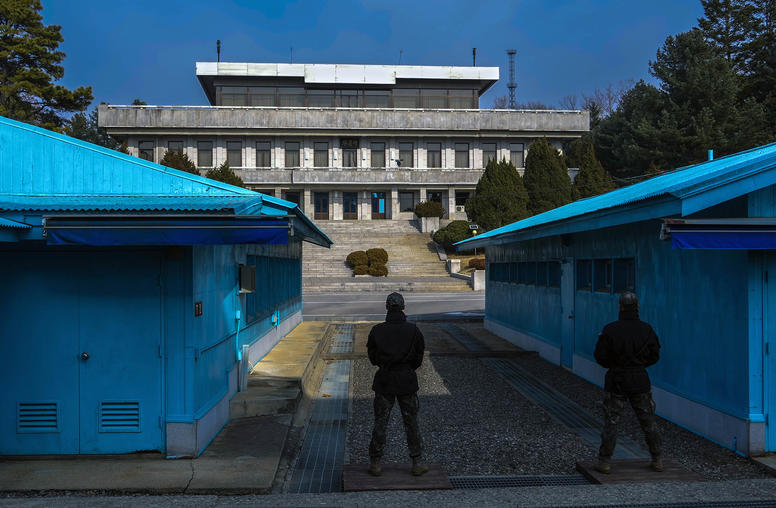
Exploring Peaceful Coexistence with North Korea
The United States and North Korea coexist today in an antagonistic, high-risk stalemate. The Kim Jong Un government, feeling besieged by a “hostile” U.S. policy and fearing the potential for regime change, has centered its national defense strategy on strengthening deterrence through nuclear weapons. Facing this intractable nuclear threat, the Biden administration has reinforced a coercive, pressure-based approach that relies on diplomatic isolation, military deterrence and economic sanctions to contain, if not change, North Korea’s defiant behavior.
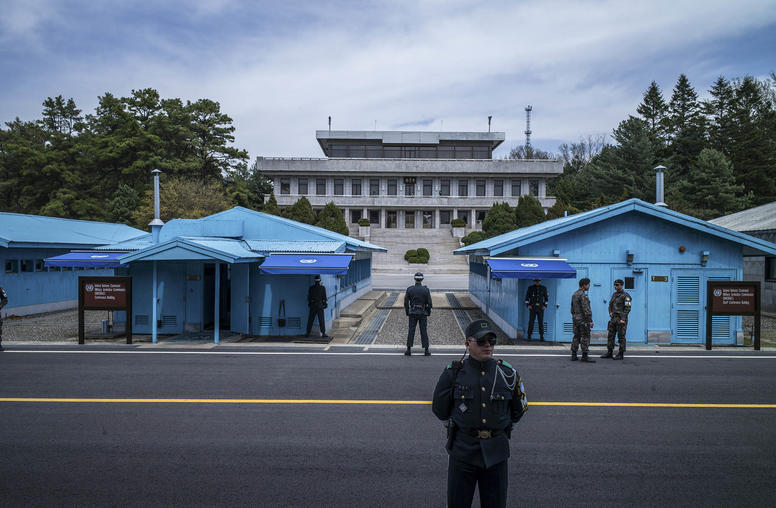
How to Reduce Nuclear Risks Between the United States and North Korea
Since the collapse of the unprecedented leader-level diplomatic process between the United States and North Korea in 2019, relations between the two sides have been at a standstill. In 2021, as the Biden administration entered office, North Korean leader Kim Jong Un set into motion a wide-ranging plan for the modernization of his nuclear forces. This modernization has helped render his nuclear deterrent more credible while accentuating the risks of nuclear conflict on the Korean Peninsula. It has further cemented North Korea’s lack of intent to relinquish its nuclear weapons, which it views as the essential cornerstone of its national defense strategy.
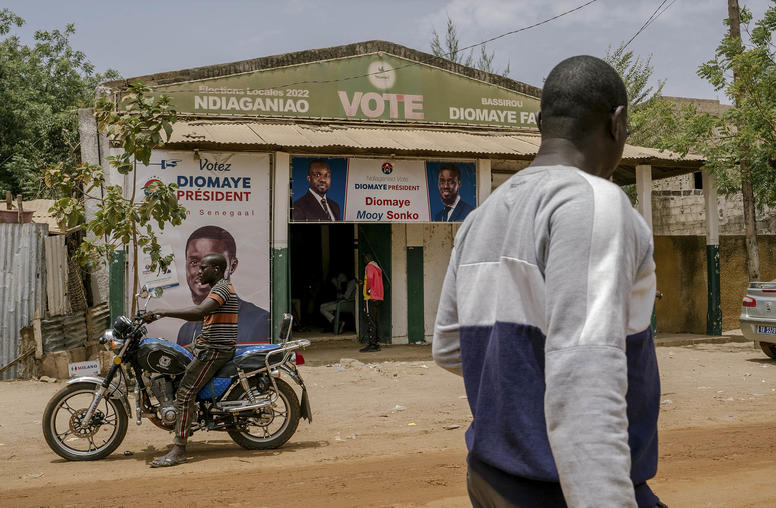
Senegal just saved its democracy. That helps all West Africa.
Senegal’s dramatic transfer of presidential power this week highlights that West Africa, routinely seen as a zone of democratic erosion and failure, includes an arc of resilient coastal democracies — from Senegal to Liberia, Ghana and Nigeria. The Senegalese people’s resolute reversal of last month’s constitutional crisis shows that U.S. and international efforts to counter violent extremism and military coups can reinforce a potent West African democratic constituency. Vital next steps include these: supporting Senegal’s democratic forces in shifting from “campaign mode” to inclusive governance; promoting economic investment to bolster youth employment and rule-of-law reforms; and energizing a West African democratic alliance against extremism and coups.

Indigenous Pathways to Peace
Many of the world’s Indigenous peoples live in unstable areas, struggling to survive as conflicts, transnational organized criminal networks and extractive projects upend their lives and livelihoods. Unfortunately, peace processes in these contexts are often negotiated at high political levels without the inclusion of Indigenous peoples. This can undermine the chances for success, as Indigenous peoples are a crucial population in some of the world's longest-running conflicts. But even further, excluding Indigenous people means overlooking how Indigenous traditions, rituals, and religious and political practices can help advance peace and resolve deadly conflict.

How a Fractured Myanmar is Navigating U.S.-China Rivalry
As the rivalry between the United States and China intensifies, Southeast Asian countries have been forced to navigate this growing power competition. The challenge has proven formidable even for those with strong governance and stability. For Myanmar — where a civil conflict between the ruling military junta and a loose alliance of resistance groups recently entered its fourth year — developing a cohesive approach to navigating U.S.-China competition might seem unattainable and unimportant in the current moment.

Ce qu'un gouvernement de transition en Haïti aura besoin pour réussir
Après des semaines de consultations, et au milieu d'une quasi-rupture totale de l'ordre et de la loi en Haïti, un effort dirigé par la Communauté caribéenne (CARICOM) pour créer un nouveau conseil de gouvernance de transition pourrait être sur le point d'être achevé. La mise en place du conseil permettrait l'entrée d'une force de sécurité multinationale qui pourrait ensuite se joindre à la police nationale haïtienne pour rétablir l'ordre. Certains ont suggéré l'inclusion de "facilitateurs" pour la nouvelle force de sécurité - soutien aérien, drones, renseignement. Mais pour gagner la confiance du peuple haïtien, le nouveau conseil de gouvernance aura besoin de ses propres "facilitateurs" populaires, d'un moyen systématique d'inclure de nombreux autres secteurs de la société haïtienne qui sont actuellement ignorés ou délibérément exclus de la gouvernance.

What a Transitional Government in Haiti will Require to Succeed
After weeks of consultations, and amidst a near total breakdown of law and order in Haiti, a Caribbean Community (CARICOM)-led effort to create a new transitional governing council may be nearing completion. The council’s establishment would allow for the entry of a multinational security force that would then be able to join with the Haitian National Police and restore order. Some have suggested the inclusion of “enablers” for the new security force — air support, drones, intelligence. But to gain the trust of the Haitian people, the new governing council will need its own popular “enablers,” a systematic way to include many more sectors of Haitian society that are currently ignored or deliberately excluded from governance.
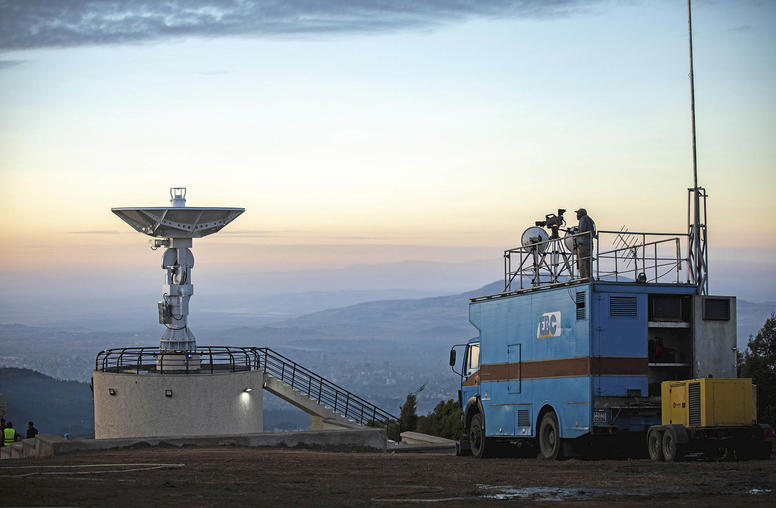
China’s Space Collaboration with Africa: Implications and Recommendations for the United States
Beijing has made support for the development of African nations’ space programs a key incentive for the continent to form closer ties with China. By contrast, although US federal agencies and universities are actively involved in research partnerships with some African countries, space technology has not been a focus of US foreign policy in Africa. This report provides an overview of China’s partnerships with Africa’s space programs and offers recommendations for boosting US engagement to advance shared diplomatic, economic, and security objectives.

Critical Minerals in Africa: Strengthening Security, Supporting Development, and Reducing Conflict amid Geopolitical Competition
The United States Institute of Peace convened a senior study group to explore the role Africa plays in the United States’ efforts to diversify US critical mineral supply chains and how new investment in partnerships with African countries could help drive economic development and strengthen peace and security on the African continent. Based on meetings and interviews with relevant technical, operational, and policy experts, the study group developed multiple recommendations for the United States to support mutually beneficial public and private partnerships with African nations.
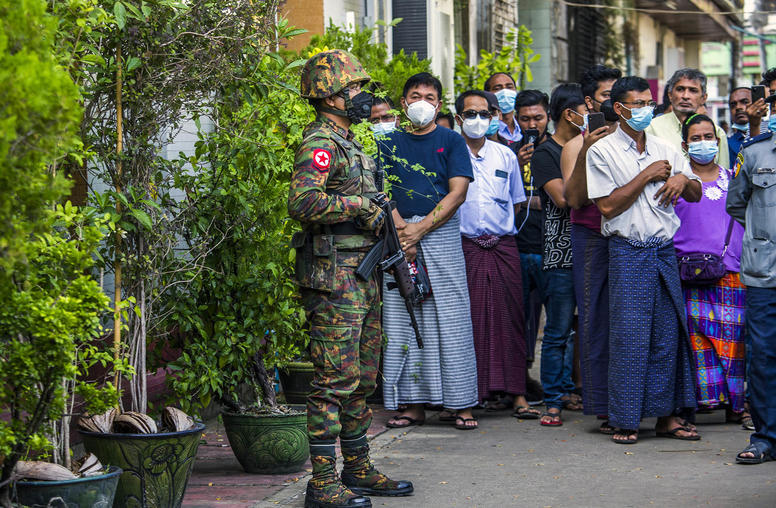
Myanmar’s Military Is Smaller Than Commonly Thought — and Shrinking Fast
International actors seeking to end Myanmar’s civil war make an assumption that on its face appears reasonable: They need to focus on the coup regime for any resolution of the conflict, the thinking goes, because the military is simply too big to fail. But is it? The Sit-Tat, as the armed forces are known, is an opaque institution, shrouded in secrecy, with the question of its actual size a major mystery. As explained below, analysts who lack reliable evidence tend to make estimates of military manpower that are far too high.